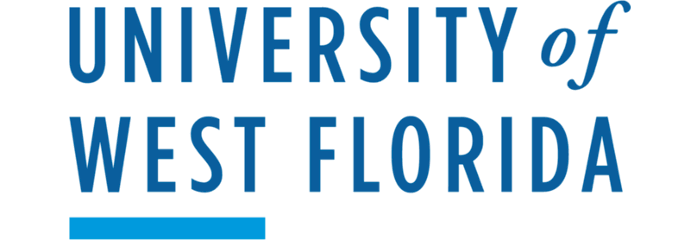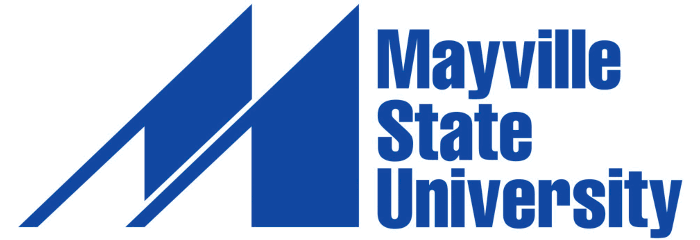2025 Best Online Degrees in Special Education
Special education online degrees are designed for students who want to educate people with disabilities, often covering topics like educational psychology, child development, and language skills. While some programs are 100% online, others involve components in person, such as student teaching demonstrations and preclinical experiences.
Key Takeaways:
- Florida International University stands out with its special education degree providing graduates with a median salary of $57,130. This places the online program in the top 2% nationally across similar programs.
- Western Governors University stands out in online education with an enrollment of 156,935 distance learners.
- Even at #19 on our list, Chadron State College is noteworthy for its 100% recommendation rate.
Our list focuses on the real-world outcomes of alumni, specifically their post-graduation salaries, which we use to calculate a "Salary Score." Additionally, we consider the most popular online schools as well. To explore the methodology further, please visit the methodology page.
2025 Best Online Degrees in Special Education
| Rank | School | Salary Score | Median Earnings | A+ | $57,130 | 14,804 | $16,997 | |||||
|---|---|---|---|---|---|---|---|---|---|---|---|---|
| University of Georgia | B+ | $47,248 | 1,166 | Learn more about how we make money.' > | B | $45,589 | 156,935 | Learn more about how we make money.' > | N/A | $38,045 | 35,243 | $11,700 |
| University of Arizona | N/A | $40,716 | 6,616 | $15,750 | ||||||||
| Old Dominion University | N/A | N/A | 5,998 | $13,170 | ||||||||
| Franklin University | N/A | N/A | 5,224 | $11,940 |
2025 Best Online Degrees in Special Education - Program Details
#1
- Salary Score: A+
- Median Earnings: $57,130
- Online Enrollment: 14,804 enrolled
- Annual Tuition: $16,997
Online degree:
Why we like them: FIU is highly regarded for placing it in the top 2% of universities with 14,804 students engaged in online studies. This is bolstered by the school’s impressive earnings outcomes, with graduates earning a median salary of $57,130, an A+ Salary Score. FIU's special education online degree focuses on the educational policies and developmental needs for individuals with disabilities, aged 5-22. The program requires 120 credits and includes courses on instructional practices and technology in special education, cultural foundations, and educational psychology. It does not lead to teacher certification, allowing students to follow diverse career paths such as advocacy, therapy, or disability services.
#2
- Salary Score: B+
- Median Earnings: $47,248
- Online Enrollment: 1,166 enrolled
- Annual Tuition: $30,220
Online degree:
Why we like them: UGA's special education bachelor's has a B+ Salary Score, with a median salary of $47,248, This places it comfortably within the top 66% of programs. You also benefit from UGA's graduation rate in the top 3% and a retention rate in the top 4% nationwide. The special education bachelor's an exclusively online program designed for residents of Georgia. It offers a comprehensive, two-year curriculum aimed at providing teaching certification for the Special Education General Curriculum (P-12). This program accommodates a cohort model and features three practicum experiences tailored to you in various settings, ranging from P-2 to 9-12 grade bands.
#3
- Salary Score: B+
- Median Earnings: $47,106
- Online Enrollment: 2,200 enrolled
- Annual Tuition: $12,360
Online degree:
Why we like them: With an online student body of 2,200, UWW is plenty accessible for distance learners. The median earnings for those taking on this online special education program are $47,106, ranking in the 65th percentile, competing favorably with education degrees nationwide. It's designed for those working as para-educators or special education assistants. The program allows licensing to teach across various special education settings thanks to its cross-categorical licensure pathway. The format is fully online, and courses structure into 8-week and 3-week sequences across autumn, spring, and summer terms. Throughout, students are partnered with local school districts for hands-on fieldwork experiences.
#4
- Salary Score: B+
- Median Earnings: $46,956
- Online Enrollment: 10,005 enrolled
- Annual Tuition: $11,607
Online degree:
Why we like them: AP College’s education bachelor's ranks in the top 2% for online enrollment, with 10,005 students. This online degree prepares you to teach students with mild to moderate disabilities and qualifies you for state certification. It includes endorsements in Reading and ESOL, boosting employability in K-12 schools. With a curriculum that blends general and specialized education, the program addresses Florida’s critical teacher shortage areas. School-based experiences, supervised by seasoned educators, are integrated throughout, offering pathways for further certification with additional coursework.
#5
- Salary Score: B
- Median Earnings: $45,966
- Online Enrollment: 5,316 enrolled
- Annual Tuition: $12,000
Online degree:
Why we like them: With 5,316 students engaged in online programs, IRSC ranks among the top 7% of institutions for online participation. This degree program caters to aspiring educators, offering early career paths at both elementary and high school levels, with special focus areas in math, science, and Exceptional Student Education (ESE). Additionally, students can enhance their qualifications through technical certifications. The Educator Preparation Institute provides an expedited pathway for individuals holding non-education bachelor's degrees, offering completion within a year, and preparing participants for state certification.
#6
- Salary Score: B
- Median Earnings: $45,589
- Online Enrollment: 156,935 enrolled
- Annual Tuition: $8,300
Online degree:
Why we like them: WGU has exceptional online enrollment numbers, boasting over 156,935 online learners, and a B-grade Salary Score with median earnings at $45,589 for its online bachelor's in special education. This is designed to prepare you for licensure in teaching students with mild to moderate disabilities. The program consists of 38 courses and employs a competency-based model, allowing you to progress at your own pace. It includes foundational and advanced clinical practice through virtual simulations and in-person experiences, ensuring you're ready to meet licensure requirements in states that offer K–12 special education licenses.
#7
- Salary Score: N/A
- Median Earnings: $38,045
- Online Enrollment: 35,243 enrolled
- Annual Tuition: $11,700
Online degree:
Why we like them: LU ranks highly due to its substantial online enrollment of 35,243 students, placing it within the top 1% of institutions for remote education in the U.S. LU's Bachelor of Education in Special Education is a 120-credit program conducted entirely online, with courses condensed into eight weeks. The program is accredited by the Council for the Accreditation of Educator Preparation (CAEP) and meets the Virginia Department of Education (VDOE) standards, critical for licensure in Virginia. Students engage in hands-on training and practicums locally, gaining 90 practicum hours and a full semester in a student teaching role.
#8
- Salary Score: N/A
- Median Earnings: $40,716
- Online Enrollment: 6,616 enrolled
- Annual Tuition: $15,750
Online degree:
Why we like them: UArizona is highly regarded in the realm of online education for its significant online enrollment figures, featuring 6,616 distance learners, which positions it in the top 4% of colleges for online engagement. Its bachelor's degree in special education online requires the usual 120 credits and is designed for Arizona residents. The curriculum includes three semesters of field-based practicum experiences and a final student teaching semester, offering diverse placements and intensive coaching. Coursework prepares you to support students with specific learning disabilities, emotional-behavioral disabilities, and more.
#9
- Salary Score: N/A
- Median Earnings: N/A
- Online Enrollment: 5,998 enrolled
- Annual Tuition: $13,170
Online degree:
Why we like them: ODU is within the top 6% nationally for the highest number of online students. ODU's online special education program prepares you to teach children with disabilities. You can specialize in either a general or adapted curriculum, equipping you to teach children across the K-12 spectrum with mild to severe disabilities. The program includes a significant fieldwork component, giving you real-world experience under supervision through a required student teaching internship. Graduates will qualify for Virginia teacher licensure, with the program designed to also potentially meet requirements in other states.
#10
- Salary Score: N/A
- Median Earnings: N/A
- Online Enrollment: 5,224 enrolled
- Annual Tuition: $11,940
Online degree:
Why we like them: Franklin's intervention specialist program requires 120 credit hours, with up to 75% credit transfer possible. Students must complete at least 30 hours at Franklin, and the program offers both online and blended formats with 6 to 16-week courses. Courses begin multiple times throughout the year, including options for November, January, May, and August starts. It emphasizes practical experience, placing students in classroom settings from the first term and including a hands-on teaching experience in the final term. Additionally, the School of Education is accredited by the Council for the Accreditation of Educator Preparation (CAEP).
#11
- Salary Score: N/A
- Median Earnings: N/A
- Online Enrollment: 4,071 enrolled
- Annual Tuition: $14,820
Online degree:
Why we like them: CCU's Bachelor of Arts in Special Education offers a comprehensive 120-credit online curriculum designed for K-12 educators, emphasizing a Christian worldview. The licensure option prepares you to teach in diverse educational settings after completing state requirements. With courses in five-week blocks, personalized learning flourishes through small class sizes and professional faculty. The program accommodates field experience needs and meets licensure requisites in Colorado, while out-of-state students must verify local credentialing processes.
#12
- Salary Score: N/A
- Median Earnings: $41,494
- Online Enrollment: 2,571 enrolled
- Annual Tuition: $19,451
Online degree:
Why we like them: UWF's Bachelor of Arts in Exceptional Student and Elementary Education requires 132 credit hours, including general education and major-specific courses. The program spans 48 months, with each course lasting 16 weeks. Accredited by the CAEP, it prepares graduates for the Florida Educator's Certificate in both Exceptional Student (K-12) and Elementary Education (K-6), with endorsements in Reading and ESOL. Two 100-hour field experiences precede a student teaching capstone, emphasizing hands-on learning in K-12 settings. The curriculum focuses on readiness for state certification.
#13
- Salary Score: N/A
- Median Earnings: $43,595
- Online Enrollment: 1,778 enrolled
- Annual Tuition: $16,399
Online degree:
Why we like them: The online bachelor's in special education at NSU focuses on preparing you to educate students with mild and moderate disorders across PK-12 grades. The program adheres to standards set by the Council for Exceptional Children and the Association for Childhood Education International. You will engage in 48 hours of core curriculum encompassing English, Math, Science, and Social Sciences, designed to build a solid foundation in educational theory and practice. A critical component includes hands-on clinical teaching and internships. Options for certification or non-certification tracks allow flexibility depending on your career goals.
#14
- Salary Score: N/A
- Median Earnings: N/A
- Online Enrollment: 1,378 enrolled
- Annual Tuition: $10,642
Online degree:
Why we like them: DSU's online special ed program offers a flexible format, 100% online. This dual degree equips you to serve as both an elementary and special education teacher, with an embedded K-12 educational technology endorsement enhancing your qualifications. You can complete the degree in as little as three years by enrolling full-time. Experiential learning is emphasized with distinctive practicum experiences followed by a year-long student teaching residency, placing you in real educational settings. Graduates benefit from a 100% placement rate, supported by the integration of technological acumen throughout the curriculum.
#15
- Salary Score: N/A
- Median Earnings: N/A
- Online Enrollment: 1,332 enrolled
- Annual Tuition: $8,250
Online degree:
Why we like them: CMU’s special education bachelor's prepares you for Missouri Teaching Certification in K-12, focusing on teaching students with mild to moderate disabilities. Accredited by the Higher Learning Commission and Missouri Department of Elementary and Secondary Education, the program covers teaching methods, mind development, and special needs instruction. You’ll engage with courses like Classroom Management and Counseling in Special Education, plus hands-on learning through internships.
#16
- Salary Score: N/A
- Median Earnings: N/A
- Online Enrollment: 1,172 enrolled
- Annual Tuition: $9,750
Online degree:
Why we like them: With approximately 1,172 students engaged in online programs, UWA is comfortably situated in the top third of institutions in terms of online enrollment. The Bachelor of Science in Collaborative Teacher/Special Education prepares you for a career in special education with Alabama teaching certification for grades K-6 or 6-12. The program requires 127 credit hours, typically completed in 3-4 years, with each course spanning 8 weeks. Notably, the program includes crucial field experiences and an internship, which must take place in an Alabama-approved school.
#17
- Salary Score: N/A
- Median Earnings: N/A
- Online Enrollment: 864 enrolled
- Annual Tuition: $25,440
Online degree:
Why we like them: UAS’s online special education bachelor's prepares you to meet the diverse needs of students in Alaska’s remote and urban communities. Designed for aspiring K-12 special education teachers, the program leads to an Alaska Teaching Certificate with an Endorsement in Special Education. The 120-credit curriculum covers general education and specialized coursework, integrating Alaska Native knowledge and original language learning. Unique courses, like Special Education through the Lens of Alaska Native Peoples, and a senior practicum ensure practical readiness for licensure, allowing students to remain in their home communities while learning.
#18
- Salary Score: N/A
- Median Earnings: N/A
- Online Enrollment: 781 enrolled
- Annual Tuition: $16,278
Online degree:
Why we like them: UW-Stout’s online special education bachelor's prepares you for a cross-categorical teaching license in Wisconsin, qualifying you to teach students aged five to 21. Designed for working professionals, the fully online program allows you to apply your associate degree toward completion. The curriculum includes professional certificates, such as the Autism Spectrum Disorder Specialist Certificate, which fulfill elective requirements and expand career opportunities. Graduates are eligible for Wisconsin licensure, and the program meets initial licensure requirements for other states, though additional criteria may apply.
#19
- Salary Score: N/A
- Median Earnings: N/A
- Online Enrollment: 660 enrolled
- Annual Tuition: $9,480
Online degree:
Why we like them: CSC’s online bachelor’s in education offers a Field Endorsement in Special Education Generalist for K-12. The program includes coursework in Professional Education, Endorsement, and Essential Studies, with key classes like Introduction to Teaching and Differentiated Instruction. The Special Education Endorsement requires 42 credits in subjects like Behavior Modification and Language and Learning Disorders. Students must meet Nebraska Department of Education GPA standards and pass the Praxis II Content Knowledge Test. A teacher internship provides hands-on experience, preparing students for licensure.
#20
- Salary Score: N/A
- Median Earnings: N/A
- Online Enrollment: 656 enrolled
- Annual Tuition: $12,720
Online degree:
Why we like them: Campbellsville’s online bachelor’s in special education, focused on learning behavior disorders (P-12), prepares you for Kentucky teacher licensure. Accredited by the Council for the Accreditation of Educator Preparation, the 122-credit program offers a dual licensure option in elementary education. The fully online curriculum includes 16 weeks of student teaching, blending flexibility with practical experience. You’ll gain skills in creating inclusive lesson plans, understanding special education theories, and preparing for the Praxis® exams, all under the guidance of experienced educators.
#21
- Salary Score: N/A
- Median Earnings: N/A
- Online Enrollment: 655 enrolled
- Annual Tuition: $18,402
Online degree:
Why we like them: WNMU’s online bachelor’s in special education prepares you for PreK-12 teacher licensure, offering flexibility for distance learners. The program emphasizes culturally responsive teaching and practical skill application, ensuring readiness for real-world classrooms. You’ll complete general education requirements alongside specialized courses like Introduction to Exceptional Children and ESL Methods. A capstone experience with practice teaching provides hands-on experience before graduation, preparing you for various educational settings.
#22
- Salary Score: N/A
- Median Earnings: N/A
- Online Enrollment: 600 enrolled
- Annual Tuition: $23,190
Online degree:
Why we like them: Brenau’s online or on-ground bachelor’s in special education prepares you to teach diverse learners with mild disabilities. Completed over eight semesters, the program allows you to concentrate in subjects like mathematics, science, or English language arts, enhancing your expertise. Field experiences and student teaching provide practical application of your learning. After passing the GACE exam, you’ll be certified to teach Pre-K through 12th grade, ready to make a positive impact in the classroom with a strong foundation in both theory and hands-on experience.
#23
- Salary Score: N/A
- Median Earnings: N/A
- Online Enrollment: 515 enrolled
- Annual Tuition: $8,145
Online degree:
Why we like them: MSU’s online bachelor’s in special education offers flexibility with 8-week and 16-week courses, allowing you to potentially complete the degree in 2.5 years. The program supports standalone or double-major options, enabling combination with other education majors. Licensed teachers can use the degree to gain special education licensure, and transfer credits from regionally accredited institutions are accepted. With uniform tuition for all states, this online bachelor's provides an affordable, accessible path for distance learners pursuing a career in special education.
#24
- Salary Score: N/A
- Median Earnings: N/A
- Online Enrollment: 502 enrolled
- Annual Tuition: $14,850
Online degree:
Why we like them: WCU’s online bachelor’s in general studies in education requires 128 credit hours, including two 18-hour concentrations. Concentrations include Applied Behavioral Analysis, preparing students to assist children with autism and pursue Board Certified Behavior Analyst credentials. The Educational Studies (non-licensure) concentration supports careers in education without traditional licensure, while the Special Education concentration focuses on teaching licensure for exceptional learners.
#25
- Salary Score: N/A
- Median Earnings: N/A
- Online Enrollment: 475 enrolled
- Annual Tuition: $13,950
Online degree:
Why we like them: Campbell’s online bachelor’s in special education, focused on learning behavior disorders for grades P-12, requires 124 credit hours in flexible, accelerated 8-week terms. The curriculum emphasizes evidence-based teaching for students with disabilities, covering theory, curriculum design, classroom management, and instructional adaptation. Graduates meet North Carolina Teacher Licensure requirements and benefit from the program’s strong edTPA national licensure test success. Practical experience is gained through short field experiences and local school placements, ensuring readiness for licensure exams.
#26
- Salary Score: N/A
- Median Earnings: N/A
- Online Enrollment: 443 enrolled
- Annual Tuition: $13,800
Online degree:
Why we like them: Mary Baldwin’s bachelor’s in special education offers both online and on-campus options, featuring a person-centered approach to teaching. Spanning four years, the program prepares you for a career in special education with real-world classroom experiences at elementary, middle, and high school levels. You’ll develop skills in IEP creation and culturally responsive teaching, preparing for licensure assessments. The curriculum includes foundational and legal courses in special education, complemented by an integrated practicum for hands-on learning.
#27
- Salary Score: N/A
- Median Earnings: N/A
- Online Enrollment: 320 enrolled
- Annual Tuition: $13,500
Online degree:
Why we like them: Bethel’s online bachelor’s in special education is designed for adult learners, offering a flexible, 30-month program with some in-person sessions. The curriculum focuses on customizing educational experiences for students with mild to moderate disabilities, using evidence-based practices. You can earn additional stackable licenses in Autism Spectrum Disorders, Developmental Cognitive Disabilities, and Emotional and Behavioral Disorders. With 120 hours of field experience and 12 weeks of student teaching, the program prepares you for real-world applications and meets Minnesota licensure standards.
#28
- Salary Score: N/A
- Median Earnings: N/A
- Online Enrollment: 287 enrolled
- Annual Tuition: $18,000
Online degree:
Why we like them: CUH’s bachelor’s in special education is designed for students transitioning from Leeward Community College, requiring 120 credits, including 33 upper-division credits in the senior year. Core courses cover SPED Math and Mild and Moderate Disabilities, with electives like SPED Assessment. The program includes 12 credits of student teaching and seminars, preparing graduates to teach special education across various grade levels in Hawaii. Accredited by the WASC Senior College and University Commission, it emphasizes personalized learning grounded in the Marianist tradition.
#29
- Salary Score: N/A
- Median Earnings: $39,062
- Online Enrollment: 192 enrolled
- Annual Tuition: $14,880
Online degree:
Why we like them: SMWC’s bachelor’s in education with a concentration in P-12 mild intervention special education requires 120 credit hours and prepares you to work with special needs students from preschool through grade 12. The curriculum focuses on assessment and instructional strategies for students with disabilities, complemented by multiple clinical and field experiences. A student teaching assignment in the senior year offers real-world classroom exposure. Guided by experienced educators, the program equips you with practical skills and knowledge for a successful career in special education.
Overview of Special Education Degrees
Earning a bachelor's degree in special education means studying the way children and young adults with disabilities function in an education environment. You'll not only learn about the various mental, physical, and emotional disabilities that some children face, but you'll also explore the most effective ways of managing their growth and development. Most students who pursue an online bachelor's degree in special education will go on to obtain a teacher's license, while others will continue their education with a master's degree in special education.
Once accepted into the program, you'll complete around 120 credits in four years, including relevant core classes and an in-person teaching component.
Applicants need a 2.75 to 3.0 GPA as well as a high school diploma in order to apply for a special ed program. Some students pursue an associate degree in a related field, such as early childhood education, before applying for a bachelor's, although it's not generally required. Once accepted into the program, you'll complete around 120 credits in four years, including relevant core classes and an in-person teaching component.
Can You Get an Online Degree in Special Education?
Special education degrees are widely available online and are viable ways to reach your career goals as a special ed teacher.
One of the main reasons that online schools are just as respected as their on-campus counterparts is that they're also accredited. This is an important aspect of your school to consider before you send in your admissions application.
Accreditation refers to the process of verifying the quality of your school's education by a national or institutional organization. The (CAEP) is the main accreditation organization for teaching programs nationwide. All of OnlineU's recommended programs come from accredited schools. It's also smart to ensure your program of choice meets all the criteria for your teacher's license or at least that it's designed as a track toward a teaching license.
How Long Does a Bachelor's in Special Education Take?
As briefly mentioned above, education degrees online take approximately four years to complete on a full-time schedule. They usually require 120 credit hours spread out over two semesters each year. Some programs may offer summer semesters, which allow you to accelerate your studies and complete the degree in a shorter span of time. The benefit of an online degree is that you can often take courses on your own time, allowing you to simultaneously maintain a job and family responsibilities.
If you are still undecided that special education is the best pathway for you, we also have lists to explore of the best online degrees in education as well as online elementary education degrees.
Core Courses for a Special Education Major
The curriculum for a special education teacher degree consists of core classes covering various special needs, along with teaching methods and practices. You'll learn behavior management that focuses on effective engagement techniques for your future students as well as the different tools and technologies utilized in this unique classroom setting.
Let's take a closer look at some of the core courses you can expect to encounter in an online bachelor's degree in special education:
Educational Policies and Laws
This is an interactive course that looks at the history of teaching through policies and laws. You'll be tasked with understanding the social, historical, and cultural issues that have contributed to the American education and school systems.
Educational Technology for Teaching and Learning
This course looks at the different ways technology can improve a learning environment, including the use of assisted devices. You'll not only look at effective hardware and software technologies in the classroom but also investigate the ethical use of those technologies for children with special needs.
The Inclusive Classroom
The inclusive classroom refers to the strategies for teaching and developing children in a special education environment. You'll explore the ample research and relevant case studies to develop a plan for inclusive learning.
Educational Psychology
Here, faculty introduce students to the theories that support the development of children and adolescents. You'll look at both the proven classroom practices and the well-researched teaching principles that guide linguistic, cognitive, and social development in adolescents.
Concentrations in Special Education
Special education online degree concentrations allow you to narrow your scope of understanding in a specific area. They include specializations for a particular type of special need or even the degree of severity as a whole. There are also concentrations that focus on the laws and policies surrounding special education or the devices and practices used within the classroom itself.
Consider the following special education concentrations that may be available at your chosen online school:
Autism
Autism Spectrum Disorder (ASD) is among the in the world. Therefore, autism concentrations are commonly found in special education programs for future teachers who want to educate, encourage, and oversee the progress of these individuals. You'll learn how to properly manage their daily curriculum and social activities while developing an understanding of the disorder itself.
Assistive Technology
Assistive technology refers to the devices and tools used by individuals with both physical and cognitive disabilities. They're very important for basic functionality in their daily lives, especially in an educational environment. This concentration looks at everything from interactive reading software to the latest wheelchair technology.
High-Incidence and Severe Disabilities
There are varying levels of disabilities that children face. Some require a much stronger support system than others. With a concentration in high-incidence and severe disabilities, you'll look closely at classroom training and behavioral techniques that help mitigate the naturally high stress levels for these individuals.
Visual Impairment
Visual impairment concentrations teach you the techniques for managing and developing children with varying levels of vision loss. You'll learn assistance techniques to help them navigate a classroom environment while developing accessible curriculums for their specific impairment.
What Can I Do With a Bachelor's in Special Education?
If you're pursuing special education degree programs you're likely interested in a career as a special education teacher. The majority of students in these programs go on to work in varying grade levels, from kindergarten up to high school. While this is the primary position most graduates seek, there are other roles that utilize similar skill sets and can still be centered around special needs children.
When looking at the job opportunities below, it's important to note that the only job listed that requires a bachelor's degree is the "Special Education Teachers" role — which most students are shooting for. For the rest of the positions, employers mostly require a bachelor's degree, but it's also possible to get your foot in the door without one. Let's take a look at these possible career outcomes:
Special Education Teachers
work directly in classrooms with special needs students. They manage their course curriculum, social activities, and cater to their specific disabilities — whether they are cognitive, physical, or emotional. Every level of grade school requires special ed teachers, from preschool to high school.
Adult Basic Education Instructors
educate older individuals who are no longer enrolled in school. Their responsibilities can include preparing adults for a high school equivalency exam or teaching English to non-native speakers. Not unlike special needs teachers, adult education instructors tailor their curriculum to meet the specific needs of their students.
Social Service and Community Managers
are tasked with developing and implementing outreach programs in local communities. They oversee policies and program activities while maintaining a positive influence in their neighborhoods. In many cases, special ed graduates go on to work for disability organizations and special needs outreach programs.
Tutors
are there to support individuals seeking formal education. Tutors can obtain roles assisting special needs adults or children in their pursuit of education. Their responsibilities will include preparing study materials, applying motivational techniques, and helping them work through difficult problems.
Are Sped Teachers in Demand?
According to the Bureau of Labor Statistics (BLS), all special needs teachers will see little to no job growth through the decade. Specifically, the BLS expects the role to grow by into 2032. This falls under the expected growth of all occupations across the United States, which lays around 3% currently.
Despite minimal employment growth prospects, the field of special education anticipates an average of approximately 33,500 job openings for teachers annually over the course of the decade.
What Are the Qualifications To Be a Special Education Teacher?
In order to become a special ed teacher, you'll need at least a bachelor's degree in special education. You'll also need to obtain a teacher's license in the state you plan to work in. To make things easier, it's best to pursue a degree program that contains a track for a teacher's license. This way, you'll meet all the requirements to apply for your license.
These programs will require you to complete a student-teaching practicum — another necessity for licensure. You may also meet the necessary qualifications by earning your bachelor's degree in similar subjects, such as elementary education or early childhood education.
What’s the Difference Between Certification and Licensure for Special Education?
Teaching certifications and licenses are generally regarded as interchangeable terms. Special education graduates must earn their teacher's license in order to become a certified teacher. The most important step is to check with your individual state in order to see how they designate these terms in regards to working as a special education teacher. Each state has different methods for determining an individual's qualifications for licensure.
Another important clarification is that education degree graduates can earn an online special education certification, which provides them with specialized training in special ed. This comes in addition to their education degree, which may not have contained a sped concentration.
What State Is Best for Special Education?
The BLS shows that is the state with the highest employment of special education teachers in the country. As of May 2022, there were 8,650 sped teachers working in the Golden State. They also had the highest wages when compared to the other 49 states. During the same month in 2022, California sped teachers earned an annual wage of $81,580 on average. The states with the highest average salaries were California and also New York at $114,810.
Is a Special Education Degree Right For Me?
Earning a degree in special education requires a great deal of patience and flexibility. You'll need to understand several complex and nuanced disorders while developing learning programs that fit your future students' unique needs. Thriving professionals in the world of sped tend to be advocates for students with disabilities and dedicated to ending ableist points of view from society at large. This helps them maintain their resilience during difficult moments with severely disabled students. If you're truly dedicated to helping those with special needs, you can find a fulfilling career as a special needs educator.
Student Reviews of Online Special Education Programs
Degree: Special education and elementary education (Dual Licensure) Time it took: 140 credits in 4 1/2 years while working full time is doable (including one break semester) Mentors: They are a nuisance and unnecessary. In the beginning I had to check in every week, being told I can’t miss the call. After a while there were Email check- ins instead of calls. After showing continuous progress I complained that I was a responsible adult and that I didn’t need looking after. She backed off after that... Read More
Review Date: 6/5/2023
Would Recommend: Yes
Helpful for Career: No
I loved attending WGU. It is the only school where I felt I got my money's worth. Coursework was cohesive to assignments and gave options to take little quizzes or to delve deeper into the content. Although some might find program mentors irritating, I generally enjoyed having someone I could count on to keep me on task and help me organize courses, tests, and students teaching to my schedule. My mentor was able to help me with class suggestions and any information about the program requirements... Read More
Review Date: 7/28/2023
Would Recommend: Yes
Helpful for Career: Yes
Western Governors University is a special academic school. If you want to do something with your life this is the place to go. They have flexible schedules. And the best part is they are competency based. That means you spend your time learning what you don't know. Versus reviewing things you already have a handle on. It is not a school that holds you back. They want you to succeed. But, you have to want it even more.
Review Date: 9/15/2019
Would Recommend: Yes
Helpful for Career: Yes
WGU is amazing if you are working full time and need the flexibility that a proficiency model university offers. I worked full time and was able to get 93 credits in a year and a half. The program mentors I had over that time (only two) where amazing. Both were way overqualified and super encouraging and helped me get through the program. This is program is great for those who are organized and self motivated. I live in a small rural town and WGU was perfect for my needs.
Review Date: 1/3/2022
Would Recommend: Yes
Helpful for Career: No
First off, this school is not everyone. If you are highly self-motivated and can set deadlines for yourself and stick to them, this is the school for you. If you struggle with that, I would suggest going to a more structured school with due dates. That said, I LOVE WGU! I love that I can take classes at my own pace. I love that I can log on to class when I want to and don't have to follow a set schedule. I can finish a class at 1am, 6am, 3pm or 10pm and there's no problem. I got my AS from a traditional... Read More
Review Date: 10/12/2020
Would Recommend: Yes
Helpful for Career: No
I’m not sure how this school gets so many negative reviews. I’m in my junior year and have had nothing but positive experiences. I think it really comes down to people not reading instructions and not wanting to do the work. Online classes can be very time consuming but my instructors have been so nice and helpful!
Review Date: 2/1/2020
Would Recommend: Yes
Helpful for Career: No
I love WGU! I started my degree in education and transferred to the dual license for special education. The classes are hard. If you're looking for something easy, WGU is not the place for you. I've had 2 mentors (due to the degree change) and they've both been wonderful! The teachers are great! They are super helpful and so knowledgeable. I do not have any experience in teaching but with the classes I'm taking, I don't feel like I'm going to flounder. The mentors also have experience in teaching... Read More
Review Date: 12/17/2019
Would Recommend: Yes
Helpful for Career: No
I am so pleased with this school that I am not sure where I need to begin. Begin at the beginning right? in 2011 I began to look for a new school that offered a teaching degree in special education online. My choices were slim but I persisted and I found Western Governors University. I called them and started asking questions. I was assigned an application mentor. This person was amazing. They walked me through every single step to apply. They helped me transfer my credits from my old college and... Read More
Review Date: 8/7/2019
Would Recommend: Yes
Helpful for Career: Yes
When I first started, I thought the school was great. My mentor was supportive and the course mentors were really helpful. Into my second year, things started to change and my experience with WGU seemed to get worse. My personal left to another position and I was assigned a new mentor. I didn't mind too much, but my mentors had withheld important information about state exams that I needed to take in order to complete a future course. My graduation was pushed back by six months because I did not... Read More
Review Date: 5/30/2019
Would Recommend: Yes
Helpful for Career: No
I get anxious in in-person classes, so as an introverted student, it was nice to be able to get my degree online instead of having to attend lectures. This also helped me work at my speed, which was very helpful during some of the more technical courses in the Nursing program. Honestly, the fact that I could work at a pace that was right for me instead of at a pace that the professor set was one of the main reasons I was able to graduate. So I would recommend online colleges like Excelsior to anyone,... Read More
Review Date: 1/27/2020
Would Recommend: Yes
Helpful for Career: No
When I was in my mid-thirties, I wanted to do something different with my career, so I decided to study to be a teacher. I have a wife and kids, so that complicates such a decision. The first school I went to was a community college where I received an Associate of Science in Secondary Education. Of the seventy or so total credits I earned there, Western Governors University accepted forty-four of them as transfer credit. I looked at several different options before settling on WGU. I was looking... Read More
Review Date: 6/28/2019
Would Recommend: Yes
Helpful for Career: No
I am currently in my second year at GCU and I have no complaints! My instructors and advisors are always available when I need help and the coursework is understandable and useful to my education! I am an online student and I have not had any trouble! I recommend GCU to anyone looking to pursue an online education!
Review Date: 10/11/2016
Would Recommend: Yes
Helpful for Career: Yes
This school is very unorganized and frustrating. The online staff often are poorly trained in how to use the online format and there is very little guidance or support. I found that an increased grade seemed to substitute for fixing problems when I complained and was very dissatisfied with my education. i also applied for the TEACH grant and there was no follow through on the schools end losing me over $3,000 I had qualified for the year before.
Review Date: 4/29/2016
Would Recommend: No
Helpful for Career: Yes
In theory, using an on-line educational route can be convenient, but it can also be quite daunting. GCU offers a variety of degree and graduate programs that can meet almost any need. The classes are shorter than most traditional classes, and, depending on the student, this can be either helpful or can cause some issues if one is not understanding the material. The student that will fare best in this type of environment is one who is self-motivated and capable of going above and beyond in order to... Read More
Review Date: 2/16/2017
Would Recommend: Yes
Helpful for Career: No
I have been going to GCU a little over a year. I am doubling up on some classes so I can into my student teaching next year. There classes are achievable and my experience will all personnel has been great...no problems. This is my third college so I have found it is important to ask questions if you are not for sure of something. This is not a scam school but it is expensive. I have qualified for pell grants and teach grants to help off set the tuition. This is a very good school.
Review Date: 3/17/2016
Would Recommend: Yes
Helpful for Career: Yes
Wgu is a great school to get a degree. Most people don't learn as much as a traditional brick and mortar school, but this school allowed me to work in my field for 3.5 years before I graduated. I am in my first year teaching, and I had 4 job offers after I graduated. I landed a job that checked off everything off my list!! During the last year of school I completed 21 credit hours in 2.5 months and the next semester I did 18 hours in 3 months. If you are a great test taker and a decent paper writer... Read More
Review Date: 8/31/2017
Would Recommend: Yes
Helpful for Career: Yes
This is absolutely the best university that I had the pleasure of attending. I read the reviews about the degrees from this school being worthless; to this I say, I work my butt off in this school. I have attended four other traditional colleges and universities, and the education that I received from Ashford far surpass those other schools. My first experience with AU was back in 2012; unfortunately, I had to stop attending school in 2014 for personal reason. I always knew that I would attend classes... Read More
Review Date: 9/18/2016
Would Recommend: Yes
Helpful for Career: No
I received my BA from mercy college and I am currently enrolled in their masters education program. Majority of my classes were taken online. Personally, the online program worked for me. I am a mother of three beautiful children and work full time, the adjustability of online classes cannot compare to in class. I loved all my professors and learned a lot from each course. The course requirements was reasonable and very on point to my career. In conclusion, I would highly recommend my school because... Read More
Review Date: 12/26/2016
Would Recommend: Yes
Helpful for Career: Yes
I've been working as a teaching assistant in special education for 9 years. Finally decided to become a special education teacher. Since I didn't even have an Associate degree, I knew it would be a long road since I would need to get a bachelor degree as well as go through a credential program. I transferred my credits to WGU. I needed to complete 137 credit units to earn my bachelor degree which had the credential program wrapped inside. While working full time, I worked on my degree program in... Read More
Review Date: 12/6/2016
Would Recommend: Yes
Helpful for Career: Yes
This review is based solely on my experience as a fully online student majoring in Elementary and Special Education. You should know right away that many of the teacher education courses require 15-20 practicum hours to be completed in an actual school setting. You will not be completing all of your course work online. My first two GCU classes were what I call “Welcome to College” and “Welcome to Online Courses” courses. They were extremely easy and redundant, especially since I had taken so many... Read More
Review Date: 6/19/2013
Would Recommend: Yes
Helpful for Career: Yes
Why Trust Us?
27 Data Researchers
60,000 Degrees Researched Annually
20,000 Hours Spent on Research Annually
Launching Rankings Since 2009































